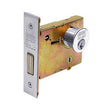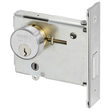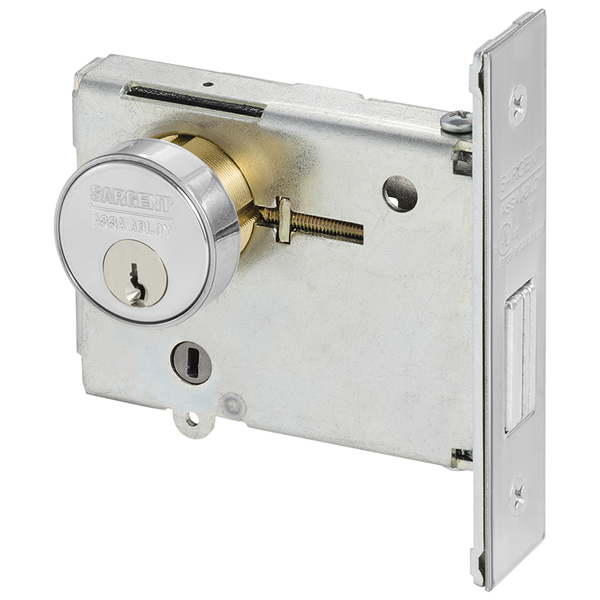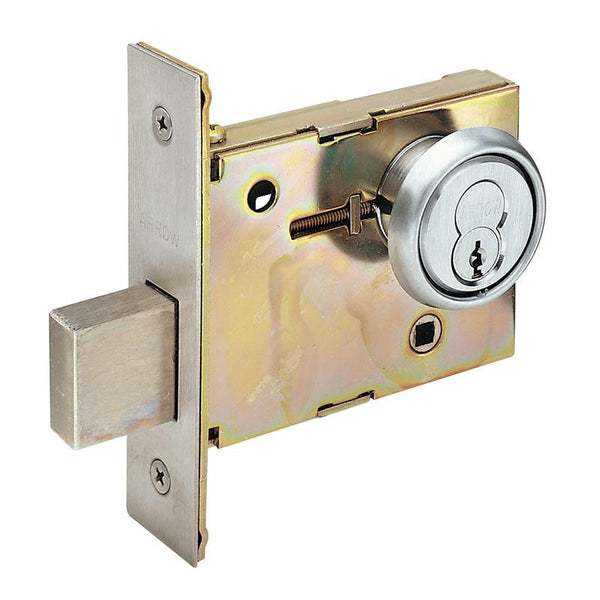Filters EXPAND ALL
-
313 Dark Bronze Anodized
-
Aluminum US28-689
-
Bright Chrome US26-625
-
Bronze US10B-613
-
Polish Brass US3-605
-
Satin Brass US4-606
-
Satin Bronze US10-612
-
Satin Chrome US26D-626
-
Satin Stainless Steel US32D-630
Mortise Deadlock and Deadlatches
17 products
Mortise deadlocks and deadlatches are essential components in securing doors, offering robust protection and peace of mind. Quality Door & Hardware has a wide selection of security and door hardware from leading brands like Sargent, Corbin Russwin, Arrow, and Adams Rite that will ensure your door is secure.
Jump to Brands
Collections
Products for "" in Mortise Deadlock and Deadlatches
17 products
Filters
-
313 Dark Bronze Anodized
-
Aluminum US28-689
-
Bright Chrome US26-625
-
Bronze US10B-613
-
Polish Brass US3-605
-
Satin Brass US4-606
-
Satin Bronze US10-612
-
Satin Chrome US26D-626
-
Satin Stainless Steel US32D-630
Mortise deadlocks and deadlatches are essential components in securing doors, offering robust protection and peace of mind. Quality Door & Hardware has a wide selection of security and door hardware from leading brands like Sargent, Corbin Russwin, Arrow, and Adams Rite that will ensure your door is secure.
What are Mortise Deadlocks and Deadlatches?
Embedded directly into the door, a mortise deadlock allows for manual locking with a key or thumb turn from both sides.
Conversely, deadlatches ensure automatic locking upon closure, combining convenience with robust security. With an array of options from single to double-cylinder and diverse core types, we ensure compatibility with any security requirement.
The Importance of Mortise Deadlocks and Deadlatches in Commercial Spaces
- Enhanced Security: Mortise locks have a hard-to-pick deadbolt making them highly secure. Deadlatches automatically lock the door upon closing, preventing shim attacks.
- Durability and Longevity: Designed to withstand heavy use, it is suitable for high-traffic areas.
- Versatility: Available for wood, metal, or glass doors, these locks adapt to various environments.
- Aesthetic Appeal: Hidden screws ensure door aesthetics are not compromised.
- Key Control: Complex keyways reduce the risk of unauthorized key duplication.
The Difference Between Deadlocks and Deadlatches
Understanding the differences between deadlocks and deadlatches is essential for choosing the right lock for your needs.
Definition:
- Mortise Deadlock: Integrated locking mechanism.
- Deadlatch: Automatically locking spring-loaded latch.
Locking Mechanism:
- Mortise Deadlock: Manual, via key or thumb turn.
- Deadlatch: Automatic upon door closure.
Security:
- Mortise Deadlock: High, with a tamper-resistant design.
- Deadlatch: Moderate to high, with anti-shim options.
Installation:
- Mortise Deadlock: Requires precise cutting and fitting.
- Deadlatch: Simpler, yet requires accuracy.
Use Cases:
- Mortise Deadlock: Ideal for commercial and high-security exterior doors.
- Deadlatch: Suitable for residential and light commercial interiors or entrance doors.
Key Control:
- Mortise Deadlock: Often comes with restricted keys.
- Deadlatch: Options for patented key systems.
Durability:
- Mortise Deadlock: Built for longevity and high use.
- Deadlatch: Durable, tough spring mechanisms offer reliable security.
Cost:
- Mortise Deadlock: Higher, due to complex mechanisms and installation.
- Deadlatch: More cost-effective without compromising security.
Aesthetics:
- Mortise Deadlock: Discreet embedding offers a sleek finish.
- Deadlatch: Visible, but designed to complement décor.
Accessibility:
- Mortise Deadlock: ADA-compliant models are available.
- Deadlatch: ADA-compliant, focusing on ease of use.
Shop for the Right Deadlock Type at Quality Door
We offer a variety of deadlock types with different core options to meet your specific needs:
- Cylinder x Blank Deadlock: Single-sided keyed access.
- Deadlatch Lock: Auto-locks upon closing for convenience and security.
- Double Cylinder Deadlock: Requires a key on both sides, enhancing security.
- Single Cylinder Deadlock: Balances security with swift evacuation needs.
Always consider your specific requirements and local building codes when choosing a lock.








